Coral 'gangs' trap and eat jellyfish
- Published
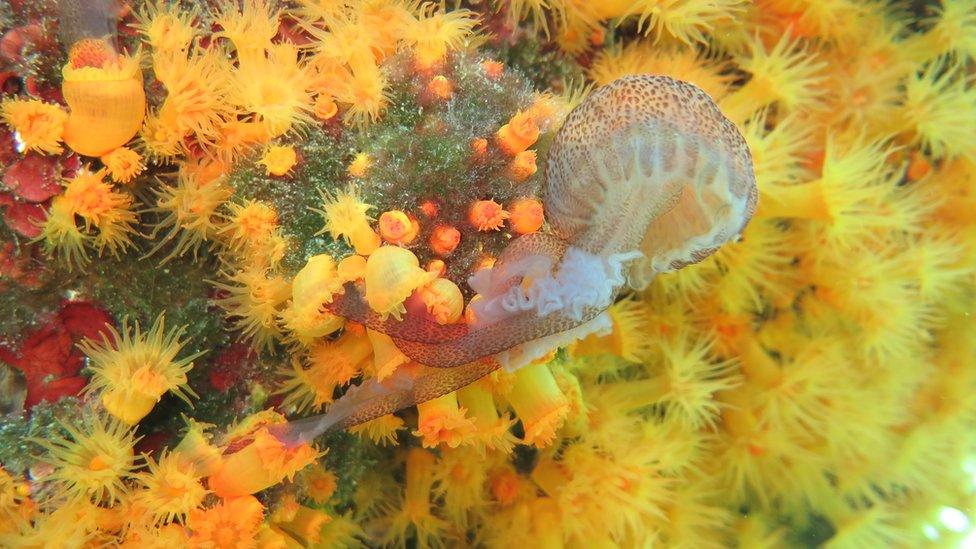
The team studied coral in caves and overhangs off the Sicilian coast in the Mediterranean
Scientists have discovered that tiny corals measuring just a few millimetres can gang together to trap and eat much bigger jellyfish.
The team, which included researchers from Italy and the University of Edinburgh, found that the corals also co-operated to capture their prey.
They found that as jellyfish tried to escape, they brushed against more corals which then latched on to them.
It was previously thought that only large corals could trap such prey.
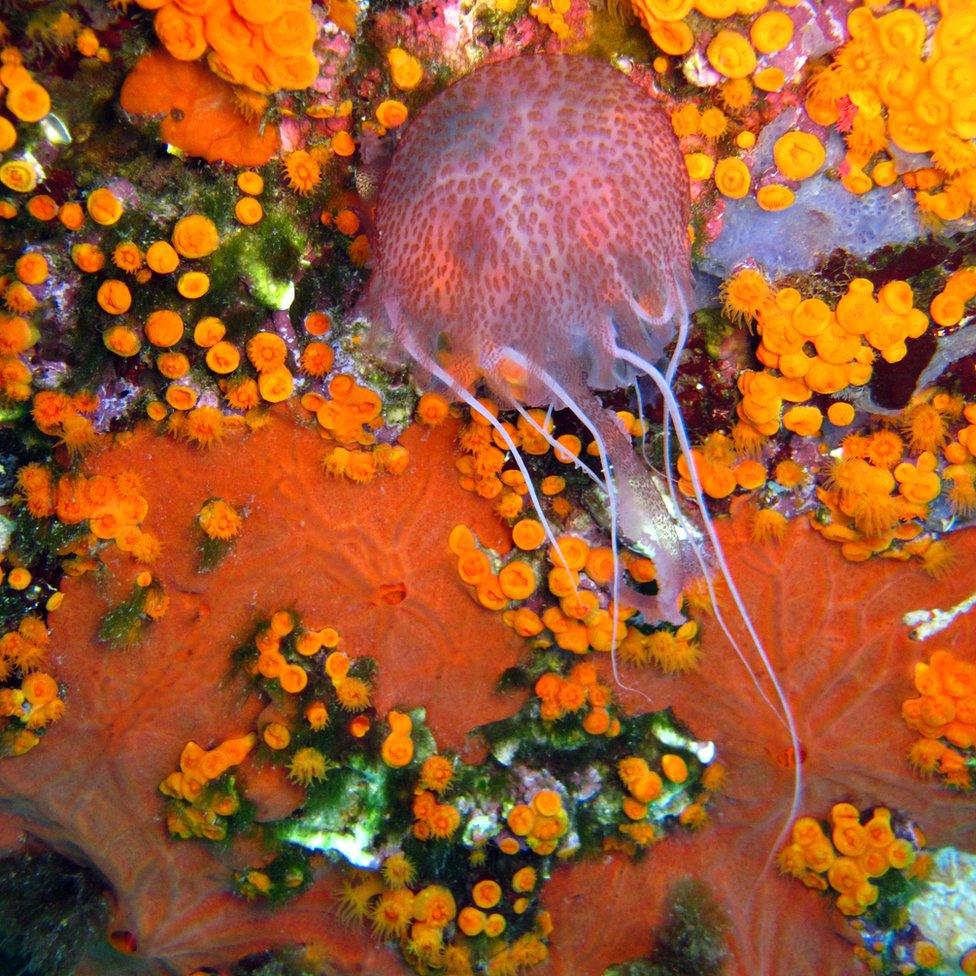
The corals grouped together to trap and eat jellyfish by latching onto them as they passed by
Prof Murray Roberts, from the school of geosciences at Edinburgh University, told Radio Scotland's Newsdrive programme that the team studied cave-dwelling corals off the Sicilian coast in the Mediterranean.
'Lying in wait'
He said that the corals typically lived on cliffs or on overhangs and were different from their cousins based in the Tropics, which lived in closer association with their prey.
He said: "These corals that live in caves or overhangs, they're in darker conditions and it seems that they have evolved to live in those places perhaps because this is where the jellyfish get washed in when they're blooming.
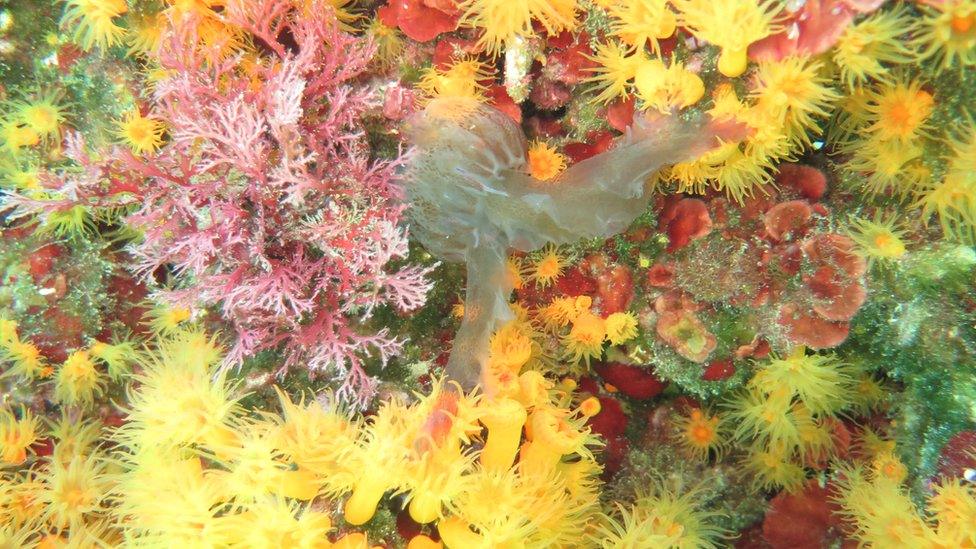
The corals consumed Pelagia noctiluca jellyfish, which cause painful stings to humans
"The corals are there lying in wait ready to ensnare them.
"What we see is that if one tiny portion of a jellyfish gets caught in one coral polyp, then the others will often be able to grab onto it as well and the whole jellyfish ends up being engulfed and then consumed by the coral."
The team observed the coral eating Pelagia noctiluca jellyfish, or the mauve stinger, which is responsible for most of the painful stings people suffer while swimming in the Mediterranean.
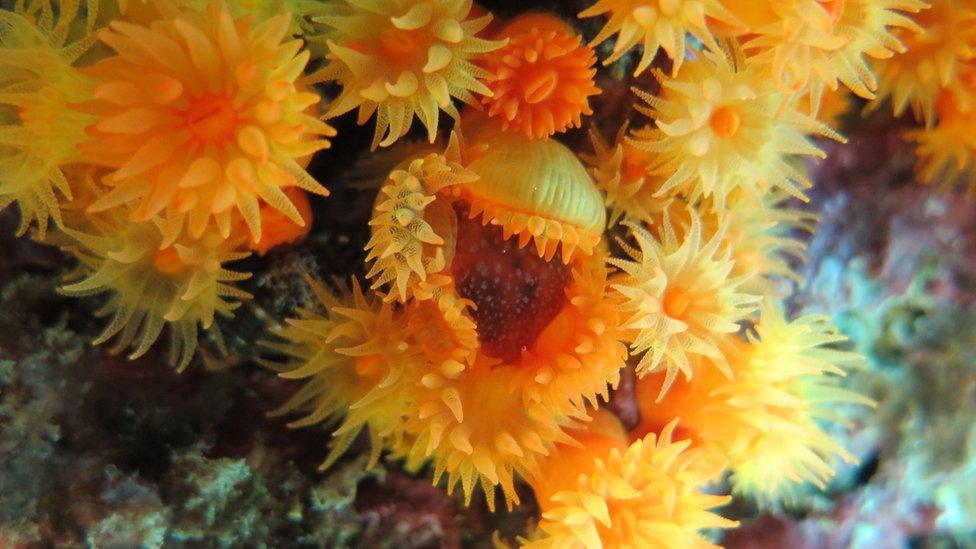
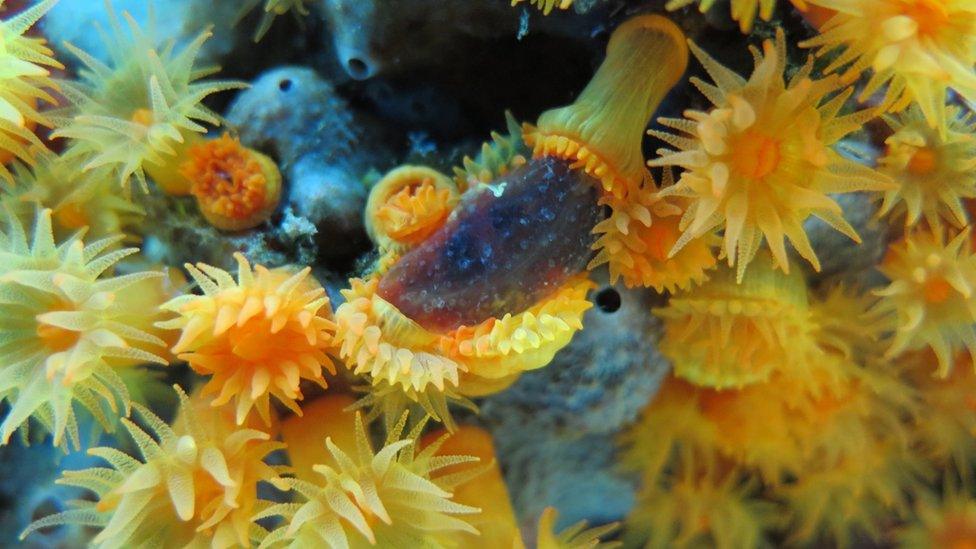
Prof Roberts said the discovery overturned conventional wisdom that corals were confined to quite small prey, such as shrimp and plankton.
He added: "The fascinating thing is that ecologically - how are these corals aware of what they're doing, how are they co-operating together, these separate polyps of coral to capture this bigger prey?"
The study is published in the journal Ecology, external.